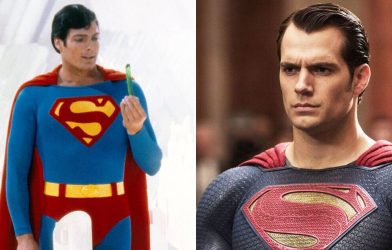Stay informed with free updates
Simply sign up to the Film myFT Digest — delivered directly to your inbox.
Hollywood has finally reached the bottom of the intellectual property barrel. Movie studios have already thoroughly mined the imaginative universes of novels, comic books, TV shows, plays and video games. Now comes a more desperate stretch to more subjects that audiences will find comfortingly familiar: dramatising the origin stories of everyday consumer products.
Next week sees the release on Netflix of Unfrosted, which spins a fantastical tale out of the invention of Pop-Tarts, those toaster pastries of psychedelic frosting, negligible nutrition and a million burnt mouths. It joins the ranks of recent films about objects ranging from Nike Air Jordans to Beanie Babies stuffed toys, puzzle game Tetris and Flamin’ Hot Cheetos, the latter telling not the story of a snack, but of one specific flavour. Towering above all of them is the immaculate plastic of Greta Gerwig’s Barbie, last summer’s billion-dollar sensation which inspired the doll’s creator Mattel to race into production on 14 more toy movies. At this point, you could conceivably spend an afternoon shopping and only buy products with major movie tie-ins.
For better and for worse, these films have attracted genuine screen talent. Unfrosted brings the feature directing debut and rare return to acting of Jerry Seinfeld, who leads an impossibly starry cast that includes Amy Schumer, Melissa McCarthy and Hugh Grant, to name only a few. Nike movie Air (2023) was given a lift by Matt Damon, Ben Affleck and Jason Bateman. The Beanie Bubble (2023) had Zach Galifianakis and Sarah Snook.

What draws these stars to appear in what are essentially feature-length commercials? The pay cheque is surely the main incentive but their talents do tend to make these films a fun ride. Air, written by Alex Convery and directed by Ben Affleck, brings verve and bombast to the story of Nike’s 1984 deal with Michael Jordan while Tetris, with Noah Pink writing and Jon S Baird directing, is made compelling by downplaying the game’s creation and focusing instead on the fight to license its distribution rights beyond the Iron Curtain. Both films also luxuriate in easy 1980s nostalgia, packed as they are with power chords, lurid tracksuits and period touchstones from Star Trek to Ghostbusters.
While they purport to tell human stories about invention and business acumen, the products are really the stars of the show, often presented with religious reverence and swelling music cues. The film’s directors argue that we live in a world that has been transformed by products, so telling their stories is also a way of telling our own stories.
Air explores the marketing innovation of imbuing a product with a celebrity’s personality, its cast repeating the would-be proverb: “A shoe is always just a shoe until someone steps into it.” And the film does track a significant societal shift: how products grew from mere objects into symbols on to which people projected their identities, desires and aspirations. It was only the beginning: today brands talk like people on social media and people act like brands to become influencers.

What disappoints is how utterly uncritical these films are of the corporations behind the products, even when those companies had no hand in the films’ production. The basic message of Air, Tetris and Flamin’ Hot is that if you take risks and innovate in business, capitalism will reward you. There is not even a passing reference to the victims of unethical business practices; the “suicide shifts” at Cheetos factories or Nike’s historic associations with sweatshop labour. The closest Air comes is Jason Bateman briefly musing on how 80 per cent of Nike shoes are made in east Asia, before shrugging it off with: “I know I should be ambivalent about that, but I’m not.” In this sense, Matt Johnson’s BlackBerry (2023) is an outlier — not just for its superior script and performances, but because it tells a story that ultimately ends in catastrophic failure, and feels all the more authentic for it.
Eva Longoria’s Flamin’ Hot follows a Mexican-American janitor who invents a billion-dollar snack brand. It is framed as a parable of Latino representation in American business. But when its protagonist tells the company boss: “I’m down here with mi gente . . . they’re looking for themselves on those shelves,” the film’s conflation of a marginalised group’s desire for representation and their desire to be marketed to by a corporation reveals more about its politics than any of its grandstanding speeches. It’s also hard to take Flamin’ Hot’s inspiring tale seriously when the “true story” on which it is based was debunked by a Los Angeles Times investigation in 2021.

It is not the only movie to stretch poetic licence to breaking point. Tetris doggedly attempts to connect the fight over the game’s distribution rights to the fall of the Soviet Union (its working title was Falling Blocks). Unfrosted, inspired by one of Seinfeld’s stand-up routines, is pure fantasy with no pretence of realism, although you might have guessed that from the first line in the trailer: “I believe we have split the atom of breakfast.”
There are many more such movies to come: Margot Robbie is capitalising on the $1.5bn success of Barbie by producing a Monopoly movie, while JJ Abrams is attached to one based on Hot Wheels toy cars (he promises it will be “emotional and grounded and gritty”). It’s possible that this consumer product trend is merely another waypoint along Hollywood’s eternal IP hunt, and it’ll move on soon enough. Or, it might simply be, as Jerry Seinfeld put in on the press trail for Unfrosted, that “the movie business is over”.
Find out about our latest stories first — follow FTWeekend on Instagram and X, and subscribe to our podcast Life and Art wherever you listen








